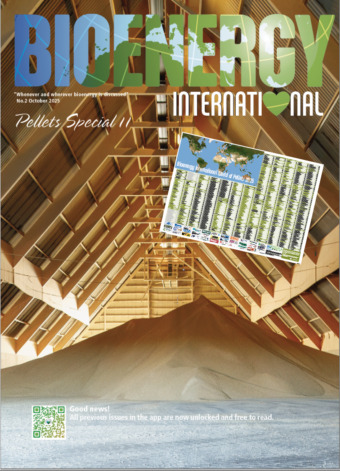Denmark-headed Topsoe A/S, a global leader in carbon emission reduction technologies, has announced that it has signed an agreement with Guangxi Free Trade Zone Hongkun Biomass Fuel Co., Ltd (Guangxi Hongkun Biomass) Guangxi Hongkun Biomass to provide its "HydroFlex" technology to produce sustainable aviation fuel (SAF) at the Company’s plant in the Qinzhou Port Area Free Trade Pilot Zone of Guangxi, China. This agreement is Topsoe’s first SAF project in China.
Topsoe will deliver its HydroFlex technology for the project, which expects to process 300,000 tonnes of feedstock annually.
The Guangxi Hongkun Biomass SAF production plant is expected to begin construction in May 2024, with SAF production to begin within the first few months of 2026.
We continue to expand our SAF technology offering across the world, and we are thrilled to secure our first agreement to supply SAF production technology to a partner in China. This agreement represents a key step in introducing an alternative to conventional jet fuel in this geography and contributes to our sustained efforts to support decarbonization globally. We look forward to further expand our relationship with Guangxi Hongkun Biomass to achieve their decarbonization goals, said Elena Scaltritti, Chief Commercial Officer at Topsoe.
Topsoe is the global leader in renewable diesel and SAF, with one-third of all operating capacity based on Topsoe technology.
Topsoe has world-class capabilities in biomass and renewable fuel production, and we are deeply impressed by Topsoe’s global leading technology and market influence in this field. After comprehensive selection, we firmly believe that Topsoe is capable of providing strong support to Hongkun in the field of bio-aviation fuel production. Guangxi Hongkun and Topsoe will continue to strengthen the in-depth cooperation in green methanol, green ammonia, green hydrogen business, to help achieve green, low-carbon, efficient, safe, and high-quality sustainable development, said Jiaming Liu, General Manager of Guangxi Hongkun Biomass.
Topsoe’s selection serves to address the rapidly growing demand for SAF. As cited by the International Energy Agency’s (IEA) Net Zero Scenario, over 10 percent of fuel consumption in aviation needs to be SAF by 2030 to stay on course for net zero carbon dioxide (CO2) emissions by 2050.
In 2022, the International Air Transport Association (IATA) estimated global SAF production to comprise only 0.1 percent to 0.15 percent of total jet fuel demand.



